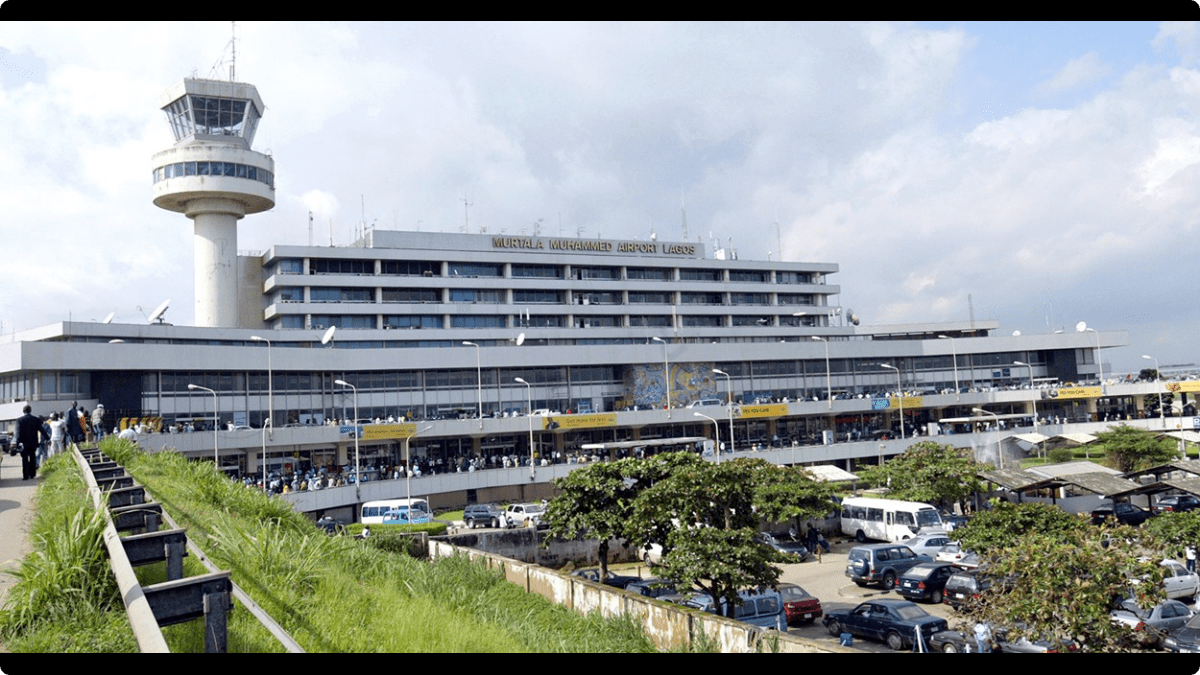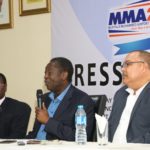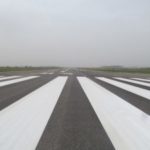
There were reports last week that the federal government has appointed transaction advisers for the establishment of a national carrier and a facility maintenance and aircraft leasing company at the cost of N1.524 billion. The Writer notes that government’s decision to engage foreign firms to provide advisory services for a national airline may be counterproductive.
Many people are opposed to the establishment of a national carrier in Nigeria, why? They believe that any business enterprise in Nigeria where government has stakes never works. Others argue that government should empower indigenous airlines by supporting them and providing them the platform to grow bigger and operate profitably with government’s full backing without having stakes in them.
However, going by the fact that since the defunct Nigeria Airways Limited was liquidated in 2004, Nigeria has not got any bearing in aviation development, from manpower development, lack of maintenance facility to the failure of having robust airlines that could compete with major carriers in operating international destinations. Many believe that having a national carrier would provide the platform for the development of the aviation sector. But can the country have a national carrier that will not have government’s control? This is a question begging for answer.
Going by the report last week, it is not unlikely that government would not have stakes in the planned national carrier. It wants to experiment on public, private partnership (PPP), which is the modern way of government is ceding parts of its responsibility to the private sector in providing social amenities, infrastructure and critical enterprise meant to serve the citizenry.
But there have been efforts to establish a national carrier since the last six years with the engagement of foreign partners and such efforts failed woefully.
Foreign Partnership
According to a report last week, the federal government had approved the appointment of transaction advisers for the proposed national carrier and concession of the nation’s airports.
The Minister of State, Aviation, Senator Hadi Sirika while addressing state house correspondents after the Federal Executive Council (FEC) meeting last week noted that the transaction advisers were as follows, “Messrs Lufthansa Consulting/TN Aero FGE, for the national carrier; for the aviation leasing company, it is Messrs Arrow; for the concession of airports, MessrsInfrataDantens; for the establishment of the MRO (Maintenance, Repair and Overhaul), Messrs Arrow; then, the aerotropolis and agro cargo terminals were given to JEBB.
“All of these were at different amounts but the total sum is N1.524bn. Council had graciously approved and these will signal the kick-start of all of the activities within the transportation and aviation industry,” said Sirika.
Industry observers in reaction to the appointment remarked that government has already appointed foreigners, arguing that there are Nigerian organisations that can actually do these and recalled that similar steps taken by government in the past failed.
However, a source told THISDAY that Nigeria may not have such transaction advisers and recalled that the International Finance Corporation (IFC) of the World Bank was engaged during the time of Chief Olusegun Obasanjo as President to oversee the privatisation of the Nigeria Airways Limited (NAL), which was later liquidated by that administration.
Transparency
But the major challenge that dogged the plan to establish a national carrier in the past, which the present effort seems to have exposed itself to, is the inability of the gladiators behind the plan to carry everybody along.
Informed source concerned and eager to have a national carrier told THISDAY that out of nine times, efforts were made to have a national carrier that failed; seven of such efforts were wrapped in secrecy, including that of the immediate past administration and stressed that the everything must be done transparently.
Also the failure to carry Nigerians along on this plan to establish a national carrier has given rise to speculations. There have been unconfirmed reports that the federal government might use ArikAir and Aero Contractors to establish a national carrier because of their stakes in the airlines, which prompted their take over by the Asset Management Corporation of Nigeria (AMCON). Although inside source have denied this report but it continues to gain traction over time due to a seeming hide and sick game being played by those determined to establish a national carrier.
Govt Stakes
In fact, THISDAY learnt that government may consider transferring the debts Arik owed AMCON and invariably the federal government into shares, which would give it substantial stakes in the airline and from there whelp a national carrier.
But an aviation insider and analyst said: “If government takes that share it will be substantial. If government has such substantial shares, the company will be under government control and people won’t invest in it. But the federal government may not go that route. I will be surprised if it does.
“Government is not supposed to own more than 10-15 percent shares. Any planned carrier where government will have more than that number of stakes will fail. This is because of the way people perceive the Nigerian government. We don’t have the discipline of government running business. In Ethiopia Airlines government does not interfere. We don’t have such discipline. Here government interferes, starting from influencing appointments to using the company’s facilities as goodwill. Nigerian government interfered even in posting of personnel at Nigeria Airways,
the source said.
Conspiracy
On the appointment of Lufthansa Consulting as Transaction Adviser, industry consultant and CEO of BelujaneKonsult, Chris Aligbe noted that Lufthansa Consulting is not an investor. He added: “After they have advised you, you are bound to take its advice of not; but Lufthansa Consulting can open up a way to involve Lufthansa Airlines. But we don’t have airline transaction adviser in Nigeria. But government must ensure that at least Nigerian companies are involved in the plan.”
Also industry observers have noted that there is a conspiracy among international carriers that operate in Nigeria to frustrate Nigerian airlines from operating international routes. This they noted, have been an old effort, which they succeed in part because of pliable government officials that yield to their whims when “settled”.
Aligbe remarked that it is because of that alleged conspiracy by international airlines that government should be very careful in taking the advice of Lufthansa Consulting.
“That is why the advice from Lufthansa Consulting must be carefully watched,” he said.
The CEO of BelujaneKonsult who is looking forward to Nigeria having a national carrier said that if government is determined, Nigeria would be able to have a national carrier by 2018 “and the Transaction Adviser could be part of the marketing and setting up of the airline. But we must eschew deliberate lack of transparency, which was part of the major reasons such efforts failed in the past.”
Importance of National Carrier
Travel expert, IkechiUko recently enumerated the benefits of a national carrier. According to him, to take advantage of the teeming population of Nigeria’s international travellers, Nigeria ought to establish a national carrier. He argued that the government having a stake in such airline would earn it respect in the comity of nations.
“Nigeria is the most connected country in Africa and now it is the number one economy in Africa. And you could see that these economies that are well connected by air are also places where the economies are fast growing. Now look at Nigeria, all the connections from Nigeria are not Nigerian carriers. So if we say that we should keep out other carriers and rely only on Nigerian carriers, Nigerian carriers do not fly to more than 15 destinations globally. This is why we need a national airline.”
But industry experts have noted that the major reason why many people oppose the establishment of national carrier is that from the hindsight, aviators and other industry observers are convinced that a national carrier cannot work in Nigeria, as long as government has stakes in it. They believe that the Nigerian system and Nigerians do not have the discipline not to interfere in an entity that is partly, if not fully owned by government.
Late last year, at Aviation Round Table (ART) meeting in Lagos, the former Director General of the Nigerian Civil Aviation Authority (NCAA), Dr Harold Demuren, warned that government should not embark on the project of establishing a national carrier; unless it would be able to ensure corporate governance and insulate it from undue interferences from government agencies and other concerned interests.
“I want to say this; you know there is a topic going on in Nigeria about the establishment of a national airline, we have gone through that many times and there are people who have tried to do it also. I just want to say one word, it is not that it is impossible but there is one point, if you know you won’t do it right, don’t do it. There is need for good corporate governance. If you don’t have good corporate governance; don’t go into it,” he advised.
Recommendation
Demuren recommended that for Nigeria to have a national carrier, it must also have a maintenance facility, which is in tune with what government intends to do.
“It is not impossible (to have a national carrier), it is not an impossible task, we can make it work but if you want to do that you must also have a maintenance facility, first class, you must have flight training with simulator, because that is what takes your money away. And you must have a good technical partner who will bring his expertise, knowledge, system and also fund into the system. If you do that you can make it,” Demuren said.
Former Commandant of the MurtalaMuhammed International Airport, Lagos and secretary of Aviation Round Table (ART) has suggested the ownership of such national carrier, saying, “A national carrier is a flag carrier and a flag carrier is a national carrier. For us to convincingly have any that would be given national outlook, Nigerians must have minimum controlling share of 55 percent distributed as follows: 36 percent for the states, with each state holding one percent; 18 percent for principals investors from each state with each principal holding 0.5 percent; Abuja and its principal one percent with each holding 0.5 percent. The foreign technical investors should hold the balance of 45 percent.
But Demuren’s advice must not fall into the deaf ears of government. And as industry observers noted, government must not have controlling share in the planned national carrier for it to succeed. If it does, then the airline would serve the whimsies of government officials both elected and appointed. Then it would just be a matter of years before it would go under.
THISDAY






